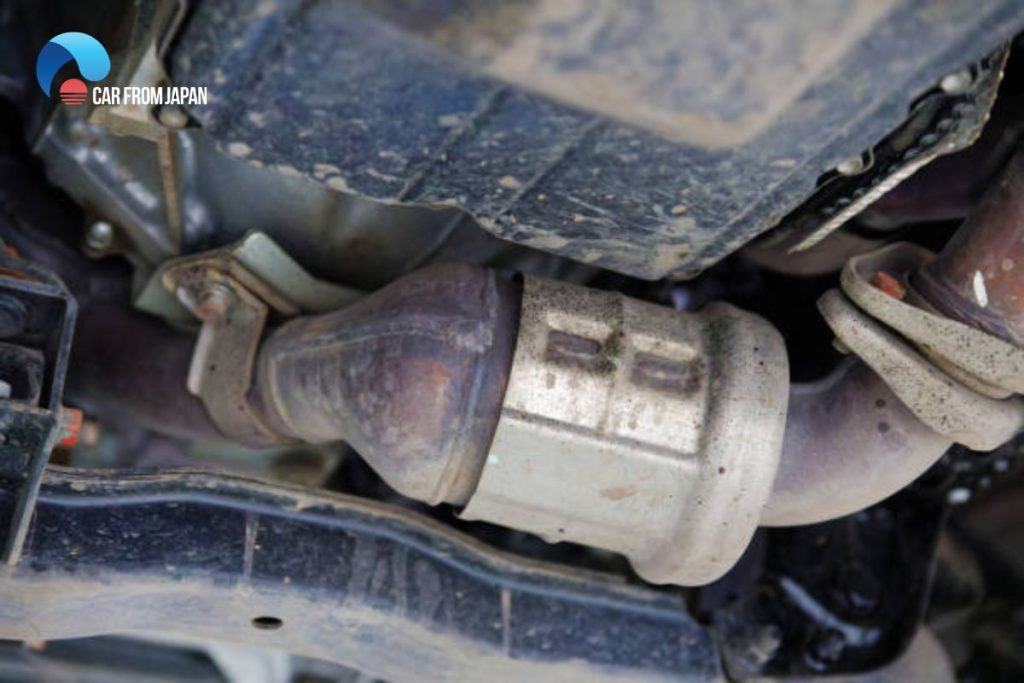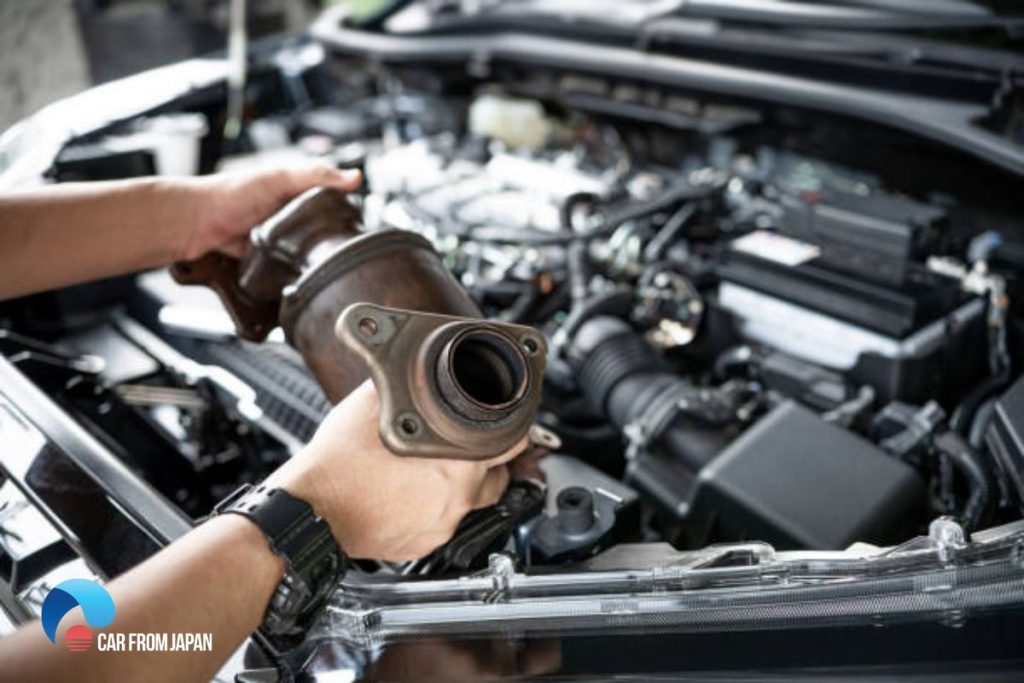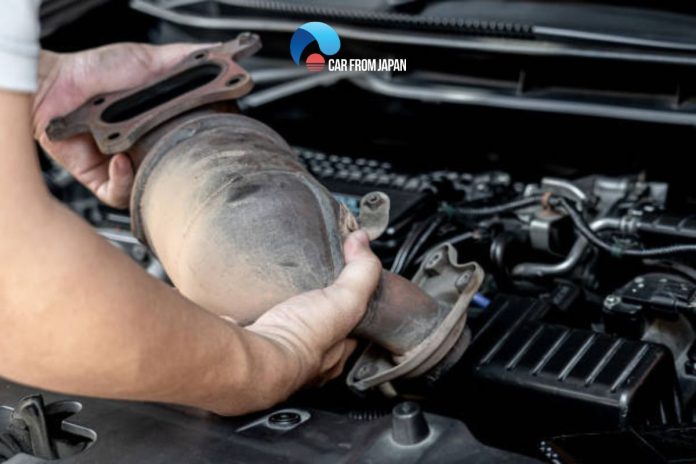You want your car to be faster and sound cooler. Removing catalytic converter seems like a cheap and easy way to do that. But before you do it, think about this: is the extra speed worth the trouble it could cause for the environment and you legally? In this article, we will make clear all the pros and cons of taking out the catalytic converter.
Contents
- Why Do People Want To Take Out Converter?
- Problems Of Removing Catalytic Converter
- How To Remove Catalytic Converter Quickly?
- Can Your Car Run Without A Catalytic Converter?
- FAQs on Removing Catalytic Converter
- What does a car sound like without a catalytic converter?
- Will removing catalytic converter harm engine?
- Is it legal to remove catalytic converters?
- How long can I go without replacing a catalytic converter?
- Does removing catalytic converter increase fuel consumption?
- How much does it cost to remove catalytic converter?
- Final Thoughts
Why Do People Want To Take Out Converter?
The catalytic converter has been used in automobiles since the 1970s. Its job is to reduce the number of harmful gasses that a vehicle emits into the environment.
The converter lowers the harmful effects of the gasses by releasing a kind of chemical catalyst. So why people want to eliminate catalytic converter:
- People arguing in favor of its removal think that it creates too much back pressure on the exhaust system and affects a vehicle’s performance by preventing it from running with its optimum horsepower.
- Improved throttle response: Some drivers report a sharper throttle response after removing the catalytic converter, as the engine can rev more quickly without restriction.
- Louder exhaust note: For those who enjoy a more aggressive sound, removing the catalytic converter can result in a louder, deeper exhaust note.
- Another reason is a clogged or failed converter because replacing it with a new one is an expensive fix. Most people opt to replace it with something energy-efficient but less expensive and others prefer to get rid of it completely.
However, performance enhancement is the primary reason for removing catalytic converter.

The basic principle is the engine can suck in more fresh air if it is possible to release a greater amount of exhaust gasses in a short period.
More air in the engine means it can burn more fuel efficiently, leading to projecting more power toward the operation of the vehicle.
Problems Of Removing Catalytic Converter
Without a catalytic converter, you can bump up the engine performance. But, it causes so many other problems that you will be wondering whether it is a good idea to go through all those troubles just for a bit of extra horsepower.
Polluting the environment
The converter reduces the harmful effects of the exhaust smoke. Some of them can even cut the detrimental elements by 90%.
Without this component, your car will discharge toxic fumes into the atmosphere directly and cause more pollution than it should.
Breaking the law
Removing catalytic converter without replacing it with a new one or any kind of alternative is against the law.
Laws and regulations regarding automobile emissions and air quality require a car to emit within a limit. However, the limit depends on the state and city you live in.
The emissions from your car should be within the emission rating in your area. Seizing and scrapping the car could be the consequence of breaking the law of emission law.
However, unlike the UK, there is no MOT test (annual testing of vehicles for roadworthiness, safety, and emissions) in the USA.
A car is deemed to be ready for driving on the road as long as it has functional front and rear lights and can speed up to 55 mph.
But, there is an emission test every other year (not in every city, though) that the car has to pass.
Annoying sound
Discarding the converter altogether also causes noise pollution. Without this component, no muffler will suppress the engine noise.
As a result, the sound will be pretty loud every time you rev up the engine.
More fuel expenses
It is exciting to find a way to boost your vehicle’s acceleration. But remember that it won’t save you fuel. Removing the component means consuming more oil and increasing your car expenses each month.
How To Remove Catalytic Converter Quickly?
If you are still willing to take risks for a few notches up in the performance meter, follow the procedure of catalytic converter removal from the exhaust system below!
- Unhitch the O2 sensor: The first step is uncoupling the O2 sensor. You can do it with a special tool called an O2 wrench.
- Pulling off the converter: The next step is to separate the converter from the exhaust system. You have to unbolt it and slide down the exhaust pipe. If it is welded to the system, clip it off with a rotary saw.
- Getting rid of the converter: It is possible to scrap the converter into pieces and sell it to a scrap shop. However, the core of the converter contains precious metal. You can sell it for good money if you can separate it from the core.

Can Your Car Run Without A Catalytic Converter?
Nothing technically prevents you from driving car without catalytic converter. Even though there will be some additional noises and performance problems, your car will still operate.
On the other hand, driving without a catalytic converter is illegal, so it’s not always a good idea.
All states need your car to have a catalytic converter to lower air pollution. Driving without it is probably not going to hurt the car, but it is going to hurt the environment more.
You shouldn’t drive for extended periods of time without it for this reason alone. The best course of action is to have it changed right away!
Check out this video from car PROblems to learn more about all pros and cons of a catalytic converter delete!
FAQs on Removing Catalytic Converter
What does a car sound like without a catalytic converter?
If you have a car without catalytic converter, you will hear a loud rumbling or roaring sound when you start the engine.
When you step on the gas, this sound becomes louder. Because the exhaust isn’t operating properly, the car drives rougher than usual, often stuttering as you change speeds.
Will removing catalytic converter harm engine?
No, removing the catalytic converter will not cause engine harm. The catalytic converter’s job is to clean up the exhaust fumes produced by the engine.
Most current automobiles will not operate correctly if the catalytic converter is removed. As previously stated, without a cat, the oxygen sensors installed before and after the cat will not be able to work within range.
This will cause engine error codes to be generated, which will have a detrimental influence on engine performance. While removing the catalytic converter will not harm the engine, you should expect a drop in engine power and fuel economy
Is it legal to remove catalytic converters?
Yes, driving without a catalytic converter is prohibited in most states in the United States. However, the Environmental Protection Agency (EPA) has created several provisions that allow driving without a CAT to be permitted.
While the legislation varies by state, it’s advisable to be cautious and keep a working catalytic converter in your car at all times.
The Clean Air Act of 1970 requires that all automobiles be equipped from the factory with carb compatible catalytic converters.
Most automobiles built before 1970 (the year the Clean Air Act was enacted) did not come standard with factory-installed catalytic converters.
As a result, certain jurisdictions (such as Georgia) will enable you to pass emission tests if your car is more than 25 years old.
How long can I go without replacing a catalytic converter?
Although they are expected to last at least 10 years, catalytic converters do not necessarily need to be replaced after that time.
It only has to be changed if the service specialists advise it and whenever you begin to notice these problems.
Does removing catalytic converter increase fuel consumption?
The catalytic converter makes the engine’s exhaust gasses and air flow via tiny channels. Its removal allows the engine to breathe more freely and produce greater power.
Depending on the automobile type, the sound is also improved, and fuel consumption can be decreased by up to 10%.
How much does it cost to remove catalytic converter?
You should budget between $300 to $1,650 (excluding work) for removing catalytic converter for the majority of current vehicles.
However, the cost of the parts and local labor rates typically affect these pricing. For instance, the cost to replace a typical catalytic converter in a contemporary vehicle might range from $500 to $2,200!
Final Thoughts
Changing your car can cost money, but some changes cost more than you think. Taking out the catalytic converter might seem cheap at first, but it could end up costing you more in the long run because it’s bad for your car and the environment.
Hopefully, this article will give you some useful information.




Hello I removed the catalytic converter from my 2010 Corolla sedan. Now there is more oxygen arriving at the bank-2 sensor and causing a check-engine warning. How can I stop the ECU from worrying about this? よろしくおねがいします。